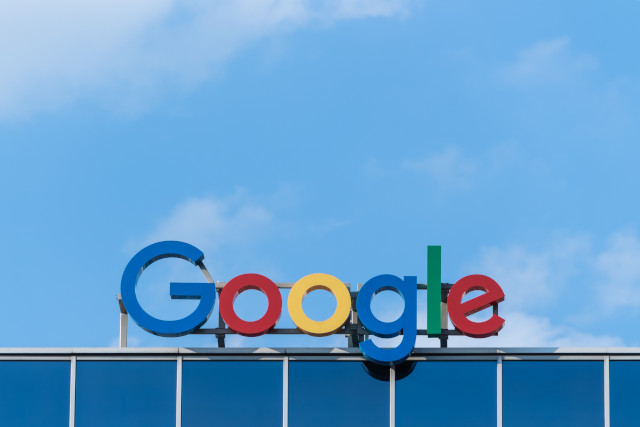
Photo by DDP on Unsplash
The Coronavirus continues to dominate the news feeds this week. Several companies are pulling out of or cancelling conferences and directing employees to stop traveling and work from home.
Articles from the New York Times and other respected news outlets are calling these preventative measures “unprecedented”. These actions beg the question, when will things go back to normal and how do firms plan around a global pandemic?
Acquisitions/Investments
- BMC Software buys Compuware from Thoma Bravo
By combining with Compuware, BMC said the companies will be better equipped to serve the enterprise technology stack. Together they plan to focus on mainframe operations, cybersecurity, application development, data, and storage as part of their enterprise DevOps strategies.
“BMC continues to be focused on evolving and investing in our portfolio to address and even anticipate the needs of our customers, helping them to succeed today and into tomorrow,” said BMC chief executive Ayman Sayed. “It’s the ideal time to bring Compuware into our portfolio as the traditional mainframe AppDev market transitions to DevOps. We’re excited to welcome the Compuware team as we build best-of-breed modern mainframe solutions.”
https://www.zdnet.com/article/bmc-software-buys-compuware-from-thoma-bravo/
- Nvidia acquires data storage and management platform SwiftStack
Nvidia today announced that it has acquired SwiftStack, a software-centric data storage and management platform that supports public cloud, on-premises and edge deployments.
The company’s recent launches focused on improving its support for AI, high-performance computing and accelerated computing workloads, which is surely what Nvidia is most interested in here.
The two companies did not disclose the price of the acquisition, but SwiftStack had previously raised about $23.6 million in Series A and B rounds led by Mayfield Fund and OpenView Venture Partners. Other investors include Storm Ventures and UMC Capital.
https://techcrunch.com/2020/03/05/nvidia-acquires-data-storage-and-management-platform-swiftstack/
- HP Rejects Xerox’s Raised Takeover Offer
Xerox this week launched an effort to acquire all HP shares outstanding, valuing HP at nearly $35 billion, or $24 a share in cash and stock. It had raised the offer from $22 a share. HP said the value of the offer’s equity component poses a risk to the company and would lead to uncertainties.
The offer would leave Xerox “burdened with an irresponsible level of debt and which would subsequently require unrealistic, unachievable synergies that would jeopardize the entire company,” HP Chairman Chip Bergh said.
https://www.wsj.com/articles/hp-rejects-xerox-takeover-offer-11583408223
Cloud
- Judge says Amazon is ‘likely to succeed’ on key argument in Pentagon cloud lawsuit
The document provides the first indication of how Judge Patricia Campbell-Smith of the U.S. Court of Federal Claims might rule in a high-stakes bid protest over the Pentagon’s JEDI cloud computing contract, which was awarded to Microsoft in October following intervention from the White House and members of Congress.
In a blow to Microsoft and the Defense Department, Campbell-Smith recently ordered the Pentagon to halt work on JEDI. In a lengthy opinion explaining her reasoning, she sided with Amazon’s contention that the Pentagon had made a mistake in how it evaluated prices for competing proposals from Amazon and Microsoft.
Security/Privacy
- Halting $9.8 Billion in Theft Is Key to Crypto Growth, KPMG Says
At least $9.8 billion in digital assets have been stolen by hackers since 2017 because of lax security or poorly written code, the accounting firm wrote in a report released Monday. Adoption of cryptocurrencies such as Bitcoin and Ether among institutional investors has led to competition for a place in portfolios, making safeguarding the tokens more important that ever, KPMG said.
“Institutional investors especially will not risk owning crypto assets if their value cannot be safeguarded in the same way their cash, stocks and bonds are,” Sal Ternullo, co-leader of KPMG’s crypto-asset services and co-author of the report, said in a statement. Among the first companies to offer custody services for crypto are Fidelity Investments and units of the exchanges run by Intercontinental Exchange Inc., Coinbase Inc. and Gemini Trust Co.
Infrastructure/Hardware
- Honeywell says it will soon launch the world’s most powerful quantum computer
Honeywell has long built the kind of complex control systems that power many of the world’s largest industrial sites. It’s that kind of experience that has now allowed it to build an advanced ion trap that is at the core of its efforts.
This ion trap, the company claims in a paper that accompanies today’s announcement, has allowed the team to achieve decoherence times that are significantly longer than those of its competitors.
**
The result of this is a quantum computer that promises to achieve a quantum Volume of 64. Quantum Volume (QV), it’s worth mentioning, is a metric that takes into account both the number of qubits in a system as well as decoherence times. IBM and others have championed this metric as a way to, at least for now, compare the power of various quantum computers.
So far, IBM’s own machines have achieved QV 32, which would make Honeywell’s machine significantly more powerful.
- HPE Reports Sales That Miss Estimates on Weak Server Demand
HPE Chief Executive Officer Antonio Neri has sought to fuel growth at the hardware company by moving to a subscription business model and investing in more sophisticated server technologies. The strategy may take years to pay off. In the meantime, HPE is exposed to China, the origin of the coronavirus, through its supply chain and its H3C server joint venture in the country. The company opted not to give a profit forecast for the current period due to uncertainty over the effects of the outbreak.
HPE’s server sales decreased 16% to $3.01 billion in the period ended Jan. 31 because of macro uncertainty, supply chain disruption and a factory consolidation, Neri said in an interview. Businesses have reduced the pace of purchases for major information technology products amid slowing global economic growth.
CoronaVirus (Breaking it out into its own section)
- eBay bans face mask and hand sanitizer listings to halt coronavirus price gouging
eBay is escalating its fight against online price gouging during the coronavirus outbreak with a new outright ban on all sales of face masks, hand sanitizer, and disinfectant wipes. The new policy, outlined in a notice to sellers posted Friday, applies both to new listings and existing ones. eBay says it is in the process of removing current listings for these items as well as listings that mention the coronavirus, COVID-19 (the illness it causes), and other popular variations of the phrases like 2019nCoV.
“We will continue to monitor the evolving situation and quickly remove any listing that mentions COVID-19, coronavirus, 2019nCoV (except books) in the title or description,” the notice reads. “These listings may violate applicable US laws or regulations, eBay policies, and exhibit unfair pricing behavior for our buyers.”
- SXSW cancels its 400K-person conference due to coronavirus
SXSW has officially announced it will cancel its tech and music conference slated for March 13th to 22nd in Austin, Texas due to concerns around coronavirus, though it’s exploring rescheduling. “Based on the recommendation of our public health officer and our director of public health . . . I’ve gone ahead and declared a local disaster in the city and associated with that, have issued an order that effectively cancels SXSW,” said Austin Mayor Steve Adler at a press conference today.
- SAP has cancelled all in-person events and says bookings on its Concur travel platform is down 20% due to coronavirus crisis
SAP said the cancelled events include its Concur Fusion conference in Orlando which was supposed to take place next week and its SAP Ariba Live convention in Las Vegas scheduled later this month.
SAP also will not participate in the upcoming SXSW gathering in Austin, Texas next week.
SAP said its own data underscore “the impact of COVID-19,” the company said in a blog post: “We have seen travel transactions in our SAP Concur network down 20% year-over-year.”
https://www.businessinsider.com/sap-cancelled-in-person-events-due-to-coronavirus-crisis-2020-3
- As coronavirus pandemic spreads, demand for remote-work startups spikes
Switching to a remote-work setup isn’t easy. Smartsheet’s Mark Mader told TechCrunch that the “challenge of remote work isn’t just about physical location,” continuing to say that it is “also about the need for people to feel connected and stay informed.” That means intelligent tooling, and smart workplaces norms and practices. (Mader also stressed low-code and no-code tooling as a possible way to empower remote workers).
The remote-work boom was recently highlighted in Zoom’s earnings report. Its results bested expectations, and in its earnings call, the company said that it was seeing rising demand for its product in the wake of COVID-19, even if most of that rising usage was for its free service. Zoom CEO Eric Yuan said that in light of the spread of the coronavirus, many companies had quickly come to understand the need for a tool like Zoom. The CEO added that he expects more companies to deploy remote work tooling like his video service in the future.
- Google recommends Washington State employees work from home, citing coronavirus risk
The software giant has not closed the offices outright, nor is it planning to make an official statement regarding the recommendation, but the news certainly points to broader trend of serious precautions around the novel coronavirus outbreak. The move follows a similar decision by Lyft, which sent home employees in its San Francisco office.
Google maintains a number of different offices throughout the state. Washington has become a major concentration for the spread of the virus in the U.S. Seventy cases have been reported, resulting in 10 deaths. The majority have been in King County, which includes both Seattle and Kirkland — both homes to Google offices.
Other
- Elizabeth Warren, big tech’s sworn foe, drops out of 2020 race
Warren’s campaign raised early red flags for tech’s giants, which are now recalibrating for the threat from Sanders.
Through the 2020 race, the elite upper echelons of tech — executives, venture capitalists and the like — sought a moderate alternative to the economic upheaval they feared would be bad for business, even as their own workers aligned with the contest’s most progressive candidates.
https://techcrunch.com/2020/03/05/big-techs-sworn-foe-drops-out-of-2020-race/
- Amazon Warehouse Workers Are Abandoning Their Jobs in Droves
Between 2011—the year the first fulfillment center opened in California— and 2017, the turnover rate in five counties with Amazon warehouses leaped from 38 percent to 100 percent, according to the report. In other words, more warehouse workers departed from their jobs each year in counties with an Amazon presence than the total number of warehouse jobs.
“What emerges is a troubling picture of Amazon’s business model—one in which the company views its workers as disposable and designs its operations to foster high turnover,” the report’s authors wrote. “The particularly high rate [of turnover for Amazon] workers as compared to the rate for similar workers suggests that Amazon’s presence has had a unique impact.”
By comparison, overall turnover rates for warehouse workers in California are 20 percent lower than they are in counties without Amazon warehouses, at 83 percent.





